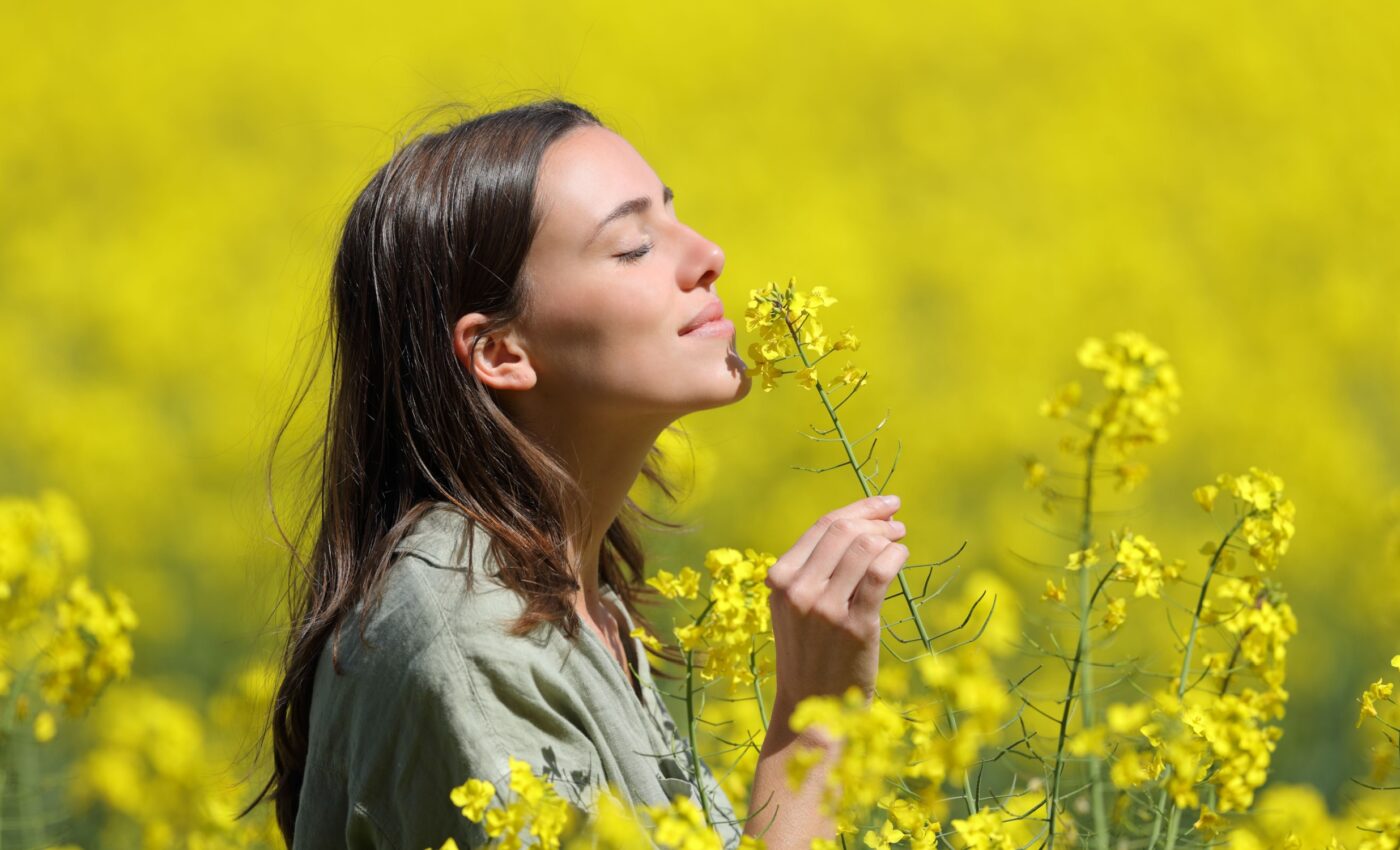
Nature’s scents linked to improved health and well-being
Nature’s scents are a less explored aspect of our environment that could offer significant health benefits, complementing the well-known visual experiences of nature that ease stress, uplift emotions, and promote physical health.
Gregory Bratman and his team emphasize the importance of understanding how these natural aromas impact our health. Their recent study outlines potential research directions that could deepen our knowledge of olfactory influences on our well-being.
A sophisticated olfactory system at work
Our sense of smell functions as a sophisticated chemical detection system. The human nose contains hundreds of olfactory receptors, which are capable of distinguishing over a trillion different scents.
These receptors transmit signals directly to the nervous system, affecting our emotions and behaviors both consciously and subconsciously.
Additionally, the natural environment is abundant in volatile organic compounds (VOCs) released by plants. These VOCs, capable of persisting in the air for extended periods, perform various roles for plants, including repelling predators and attracting pollinators.
The science of scent and well-being
“We are immersed in a world of odorants, and we have a sophisticated olfactory system that processes them, with resulting impacts on our emotions and behavior,” said Bratman. Yet, research on how these scents affect us lags behind visual studies.
Bratman and his colleagues propose a comprehensive framework to explore how nature‘s scents influence human health.
The research team, comprising experts from fields such as psychology, ecology, and public health, aims to expand our understanding of these interactions.
The experts have investigated how certain scents might trigger a “subthreshold” response, influencing us without our conscious awareness.
Cultural and personal responses to nature’s scents
The impact of nature’s scents extends beyond mere biological reactions; it is profoundly connected with personal and cultural contexts.
Asifa Majid from the University of Oxford, in collaboration with other researchers, has delved into how cultural backgrounds and personal experiences influence our perceptions of scents.
For instance, certain aromas might universally evoke pleasure, while others resonate with personal memories or vary widely in their reception across different cultures.
Human activity alters olfactory landscapes
The experts also examined how human activities alter the olfactory landscape. They found that pollution and habitat destruction can modify or obliterate natural scents, potentially robbing us of their benefits.
Jonathan Williams’ research highlights how natural VOCs react and mix in the atmosphere, emphasizing the need to better understand these processes to mitigate the negative impacts of human activity.
A deeper understanding of olfactory benefits
The research underscores the importance of a multidisciplinary approach, incorporating insights from various fields to explore the benefits we derive from nature’s aromas.
From the calming practice of Shinrin-yoku, or “forest bathing,” to neuroscience and atmospheric chemistry, each discipline contributes to a holistic understanding of how we are affected by nature’s scents.
Nature’s scents and sustainability
“We live within the chemical contexts that nature creates,” said Bratman. By deepening our understanding of these olfactory effects, we can make more informed decisions about our environmental impacts and enhance efforts to protect and sustainably interact with the natural world.
The ongoing research aims not just to enlighten but to empower, guiding future environmental and public health strategies to harness the hidden power of nature’s scents.
More about nature’s scents
Nature’s scents are as varied and complex as the landscapes from which they emerge. From the petrichor that rises with the first rain on dry soil to the sweet aroma of blooming flowers in a meadow, each scent tells a story of its origin.
In dense forests, the air carries a mix of moss, damp foliage, and wood from ancient trees, creating a deeply earthy and grounding fragrance.
Coastal scenes are marked by the crisp, salty smell of the sea, intertwined with hints of seaweed and sand. High up in the mountains, the cool air may carry a sharp, clean scent, often tinged with pine or mountain flowers.
Each of these natural aromas has a way of invigorating the senses, often evoking a sense of peace and connection to the Earth.
The study is published in the journal Science Advances.
—–
Like what you read? Subscribe to our newsletter for engaging articles, exclusive content, and the latest updates.
Check us out on EarthSnap, a free app brought to you by Eric Ralls and Earth.com.
—–













